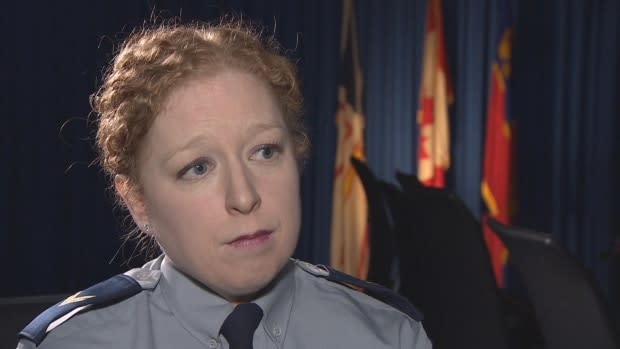Premier wants review of 'disturbing' data suggesting Labrador Innu, Inuit ID'd more often in RCMP releases
Premier Dwight Ball says a CBC story showing that a disproportionate number of people named in RCMP media releases during a 12-week period were from Indigenous communities in Labrador is "disturbing."
"I read it and it was disturbing, the analysis that I seen there," Ball said Monday afternoon at an event in Corner Brook.
"I've reached out to [the Department of] Justice and Public Safety, working with the RCMP, to do their own analysis and their response to this."
A story published by CBC on Monday examined RCMP media releases in Newfoundland and Labrador issued on social media between May 1 and July 24. In that period, 85 news releases were issued announcing charges laid in connection with crimes, including impaired driving, assault, sexual abuse and theft.
Of those, eight referenced crimes that occurred in Indigenous communities, and in almost every one of those cases (seven out of eight, or almost 88 per cent of the time), the alleged perpetrator was named.
In the remaining 77 cases, people were named in only 20 releases, or 26 per cent of the time.
Overall, out of 27 releases that included the name of the person charged, 26 per cent included the names of people from Indigenous communities in Labrador. Indigenous people make up just 8.9 per cent of the population of Newfoundland and Labrador, according to the 2016 census.
"Anyone that feels that there is unfair treatment needs attention … so we will work with the Indigenous groups, work with law enforcement, work with the department just to ensure that these numbers, if indeed they are accurate, there must be something done about that," Ball said Monday afternoon.

Ball's comments come after several people interviewed for the original story cried foul about the seemingly high number of people named from Indigenous communities.
"Everybody knows your name, and it's easier for non-Indigenous people to judge us," said Jodie Ashini of Sheshatshiu Innu First Nation.
Criminal defence lawyer Mark Gruchy said, while court records need to be public, "it does seem to be a bit disproportionate to say the least," even if the sample size is a 12-week period.
RCMP say it's not singling out Indigenous people
Cpl. Jolene Garland, media relations officer with the N.L. RCMP, said there is no effort on the part of police to single out Indigenous people.
"Race, gender, ethnicity and locations of crimes being committed are not factored into the release of the individual's name," she said.
The only factor, Garland said, is whether the charges against a person have been sworn in court at the time the release is issued.
If not, the accused's name is not public information and therefore cannot be published. If the charges have been sworn, Garland said, the accused person's name is included in a release.

Garland said there are a number of reasons why police release the names of people charged with crimes when possible.
Chief among them: accountability and transparency. Garland said the release of names is intended to instil confidence in the public that police are doing their jobs.
Another reason, the officer said, is to attempt to discourage others from breaking the law.
Ball will not deliver apology to residential school survivors
Last week, Ball acknowledged that he would not make good on a long-standing promise, made in November 2017, to apologize to Newfoundland and Labrador residential school survivors.
"It needs to be done, but unfortunately we've run out of time for me as premier to do this," he told CBC News late Friday.
According to the premier the apology was set to happen in March, at the height of the pandemic.
Then the province tried to make it happen this summer, but finally came to the conclusion — with the agreement of Indigenous leaders — that COVID-19 health measures made it impossible to apologize in the manner that Indigenous groups wanted.
Ball also said he tried to make it happen before COVID-19 was a consideration.
"We've been in conversations with the Indigenous groups over the last few years. We really wanted to get this done, but more importantly, we wanted to get this done right," he said.
Read more from CBC Newfoundland and Labrador


